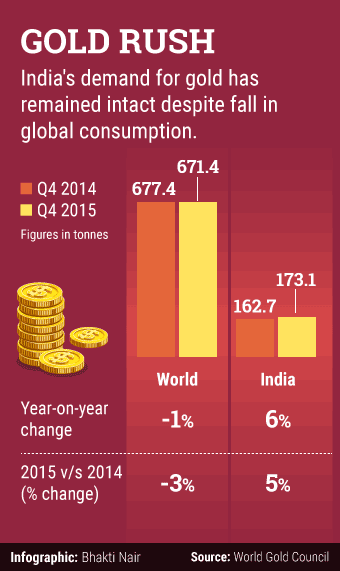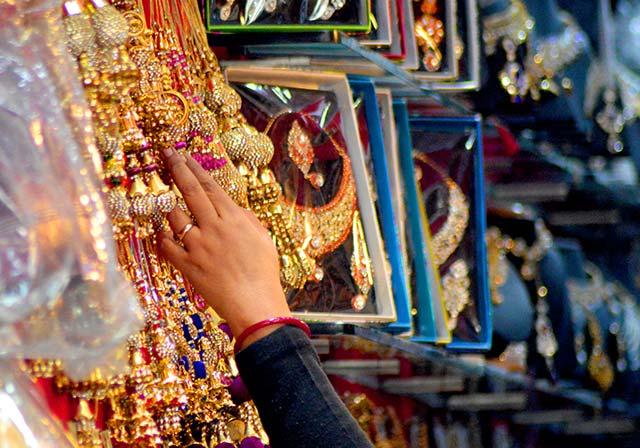The fissure, among various Indian jewellery associations and individual jewellers, is widening as many standalone jewellers are still reluctant to open shops despite prominent associations calling off the strike which started on 1 March.
The nationwide strike by bullion traders started after finance minister Arun Jaitley in the Union budget announced to impose a 1% excise duty on non-silver jewellery. However, taking cognizance of the protests, the government on 21 March formed a sub-committee under the chairmanship of former chief economic adviser Ashok Lahiri. He will interact with trade and industry representatives on tax laws and submit a report within 60 days of the sub-committee’s constitution.
Upon receiving the assurance, most bullion markets across the country opened, but not before the industry suffering a loss of Rs50,000 crore, claimed Mohit Kamboj, president of Indian Bullion Jewellers Association.
Despite the global economic uncertainty, India’s demand for the precious metal has not waned. The country, along with China, was the mainstay of the gold market in calendar year 2015. According to World Gold Council data, India’s jewellery demand rebounded in the second half of 2015. The annual demand for 2015 reached 654.3 tonnes, up 5% compared with around 620 tonnes in 2014. This is the highest level since 2010 and the third highest year on record.

“We have called off the strike as the government has given us an assurance and has formed a sub-committee to look into the entire issue,” said Kamboj, adding that there, however, are many individual jewellers who have decided to continue with the strike.
According to Rahul Gupta, managing director of New Delhi-based PP Jewellers and Diamond Pvt. Ltd, there is a division even among various associations as far as the matter of strike is concerned. “All our seven stores in Delhi-NCR (National Capital Region) are closed,” he added.
The government in its notification on 21 March said that all associations will be given an opportunity to submit representation before the sub-committee in writing and the all India associations will be able to state their case in person.
“The central excise officers will not visit the manufacturing units or shops, no arrest or criminal prosecution of any jeweller will be done till the recommendations of the sub-committee is finalised. No search or seizure of stocks by any central excise official will be effected,” the notification added.
Experts believe that Ashok Lahiri committee’s role is to facilitate compliance rather than advocating a rollback.
“Going by the developments, it is clear that the government is very firm and they are not going for a rollback of excise duty on jewellery. The sub-committee being constituted is also not there to see the rollback, rather it is there to make the compliance assessee-friendly. The ongoing strike by jewellery association is basically a pressure tactics,” said Pramod Rai, former member of the Central Board of Excise and Customs.
Apart from various individual jewellers, there are some associations as well which are unwilling to resume business.
A New Delhi-based jeweller association, All India Bullion and Jeweller Sonkar Action Committee, is not ready to yield and is continuing with the strike.
“Major associations may have called off the strike, but their members are divided. Many of their members are still continuing with the strike until the government rolls back the excise duty,” said Yogesh Singh, an office bearer of the committee.






